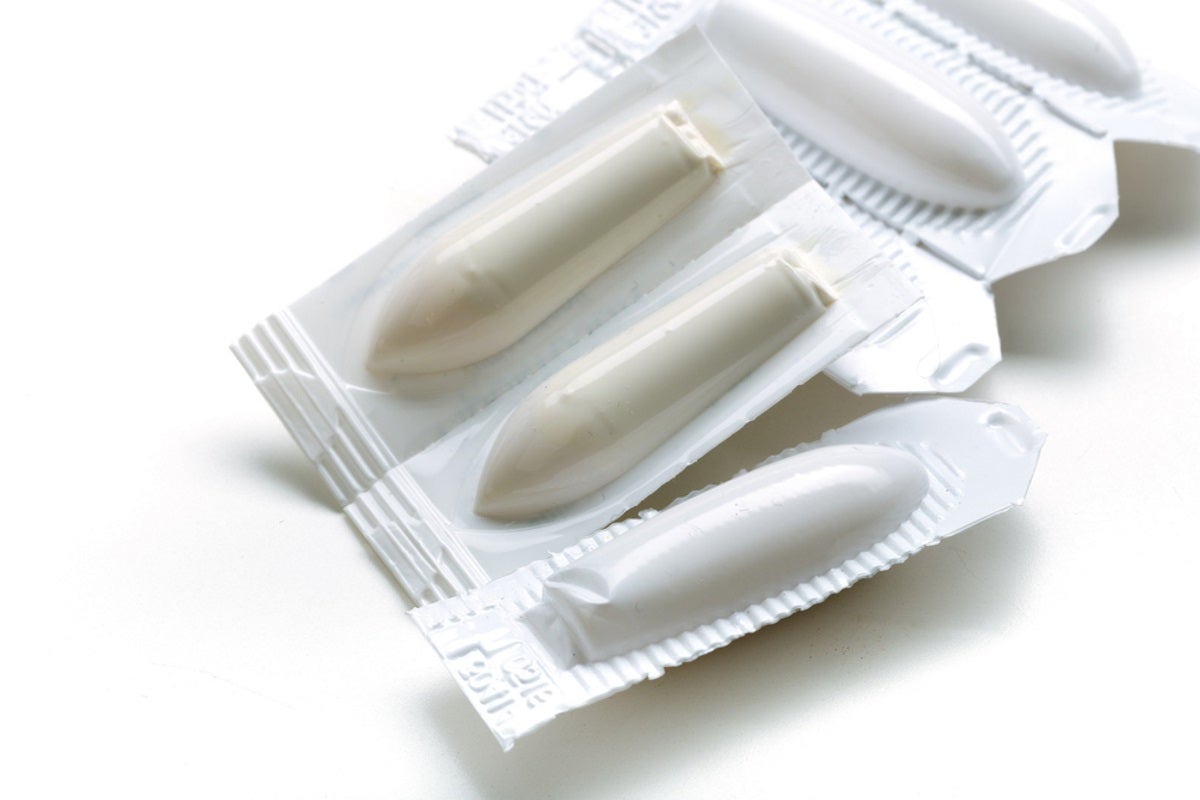Vaginal Suppositories Offer Another Treatment for Vaginal Issues Besides Estrogen Cream
A vaginal suppository containing the hormone known as DHEA is a good alternative to estrogen for treating vaginal issues related to menopause, according to a new trial.
Pain during sex and vaginal dryness improved more in postmenopausal women taking the daily suppositories than in women using placebos, researchers report. Gynecologists said the overall vaginal health of those taking the suppositories improved more, too.
The new ovule-shaped suppositories are as good as estrogen creams applied inside the vagina, said Dr. Fernand Labrie, who led the trial for EndoCeutics Inc in Quebec, Canada.
Before menopause, estrogen produced by the ovaries keeps the vaginal lining healthy. With menopause, the ovaries stop working, and the vaginal lining becomes thinner, dryer and less elastic. The loss of estrogen and effects on the vagina may cause other complications, such as pain during sex.
Estrogen cream can be prescribed to replace the hormones, but that may not be an option or choice for some women, according to Dr. James Woods, who chairs the Department of Obstetrics and Gynecology at the University of Rochester School of Medicine in New York.
For example, breast cancer is sometimes driven by estrogen, and women with those cancers take drugs to block their body from making the hormone. They also can’t risk increasing the amount of estrogen circulating in their bodies.
“For people who can’t take estrogen into their system, this is a huge advantage for them, because it brings them back to more of a normal life,” said Woods, who was not involved with the new trial.
DHEA – or dehydroepiandrosterone – is a hormone that can be transformed into male and female sex hormones. It’s thought that when DHEA is delivered directly to the vagina, the nearby tissue convert it to the estrogen known as estradiol without raising levels of the hormone in the rest of the body.
“This has been such a positive contribution for the breast cancer patients,” said Woods, who added that doctors currently prescribe a compounded DHEA cream to patients.
Compounded creams, however, must be made-to-order at special pharmacies. The suppositories tested in the study, if approved by the U.S. Food and Drug Administration, would be commercially available with a prescription.
For the new study, the researchers assigned 325 postmenopausal women to take a 0.5 percent DHEA suppository daily for 12 weeks. Another 125 were assigned to take a placebo, with inactive ingredients. All women answered questionnaires and were examined throughout the study period.
Overall, women taking the daily DHEA suppository improved more than the placebo group on measures of dryness and thinning of the vaginal lining, the researchers reported in Menopause: The Journal of The North American Menopause Society.
The women using DHEA also reported a significantly larger decrease in pain during sex, compared to women taking the placebo.
Woods said the findings did not surprise him since the percentage of DHEA in the suppository is the same as what is used in compounded creams.
The only side effect was reported by six percent of women, who said they had vaginal discharge from the suppository dissolving.
The question, Woods said, is how the compounded cream and the suppository will differ in terms of cost, if and when the FDA approves it.
Article originally appeared on www.foxnews.com: DHEA vaginal suppository good alternative to estrogen creams







